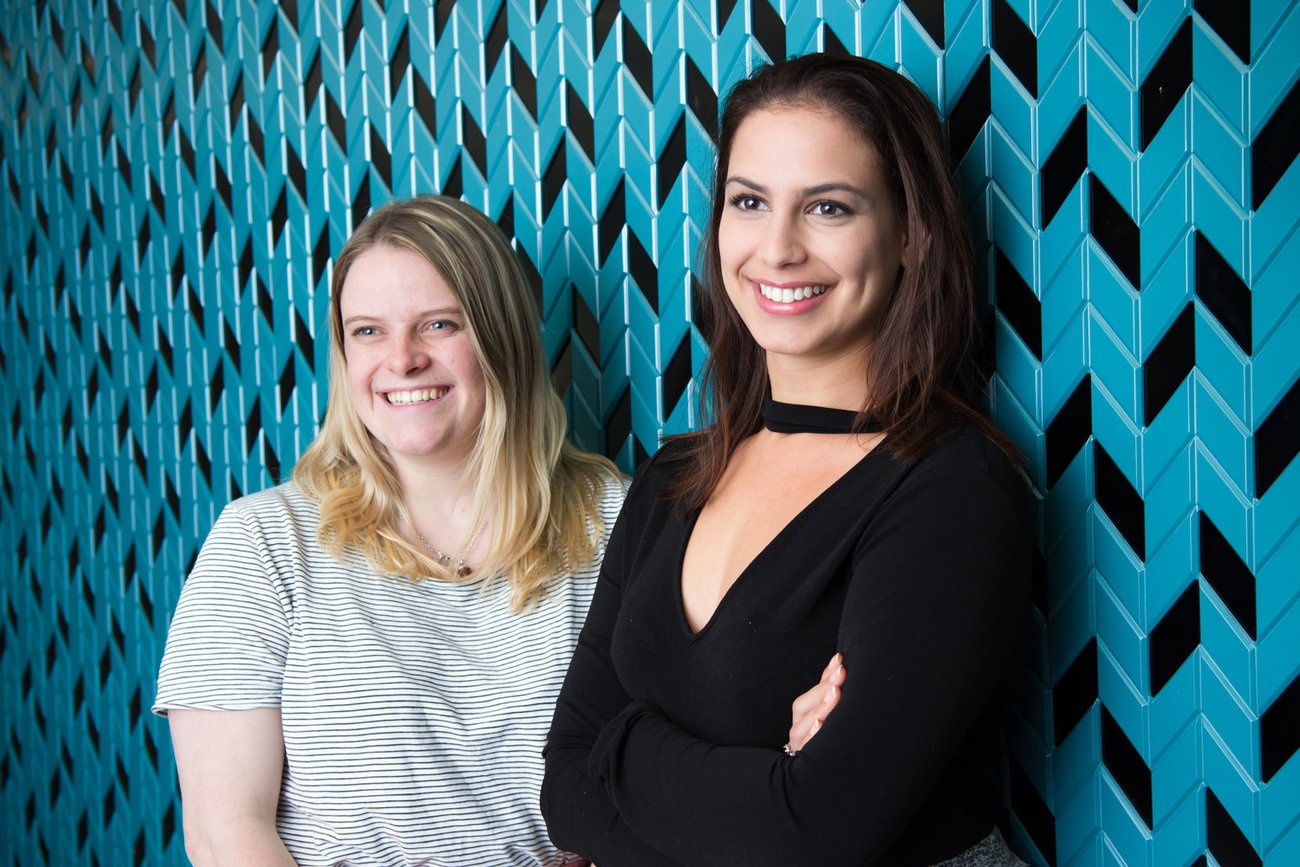Dignity’s Miranda Hitchings and Jacinta Gulasekharam on periods at work and equality (listen)

Top image: Miranda Hitchings and Jacinta Gulasekharam
Originally published March 29, 2018: Miranda Hitchings and Jacinta Gulasekharam, who founded Dignity with the idea to create affordable and accessible sanitary items for all women in New Zealand, chat about the need for sanitary items in workplaces, the importance of providing sanitary items to schools, equality, and more.
A person menstruating in New Zealand can end up spending $15,000 (or more) during their lifetime on tampons, pads and other sanitary items. That’s $15,000 more than non-menstruating people. It’s enough to make a down payment on some houses. It’s not fair. At all.
Miranda Hitchings and Jacinta Gulasekharam founded Dignity with a mission to provide access to sanitary items for all women and menstruating people in New Zealand. As they say: “It began with an idea to deliver sanitary items to women every month to stop them getting caught short on their periods. We went and asked women about a time they’d been caught short and what the hardest part was. The more women we talked to the more we realised that getting caught short wasn’t the biggest barrier about periods. The largest frustration was the unfairness.
“We wanted women to have Dignity. So we created it.”

The Dignity model is simple: for every sanitary item businesses supply free to their menstruating employees, another sanitary item is given away to secondary school students in need. It’s a “buy one, give one” model similar to a few other social enterprises, such as Eat My Lunch.
Hitchings and Gulasekharam say Dignity currently works with companies of all sizes, including large firms like Xero and Flick Electric, and partners with about 10 schools.
The sanitary items Dignity provides come from Organic Initiative (who Idealog has covered before), which organic sanitary products with the goal of being not just the best in the world, but the best for the world.

The reception from Dignity’s partners has been positive, too. As Hitchings and Gulasekharam say, Flick and Xero have found a 82 percent increase in personal support felt by their menstruating employees with Dignity.
They’re also quick to point out again that what they do all about support rather than making a profit. “Progressive, inclusive businesses understand that providing sanitary items to their female employees is just like providing coffee when some people are caffeine free or having hand towels in the bathroom – it’s just another office consumable. “
Listen to what Hitchings and Gulasekharam have to say in the podcast below.
Listen to this podcast with W? Collective’s Olie Body on period poverty, menstruation and social enterprise:
Check out this roundtable discussion with OMGTech! co-founder and general manager Zoe Timbrell, AUT lecturer and She# founder Dr Mahsa Mohaghegh and MYOB general manager Carolyn Luey on what can be done to increase gender diversity and inclusivity in New Zealand’s tech sector, what individuals and organisations can do, where things can go from here, and more:





